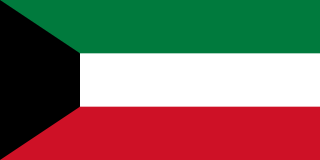Related Research Articles

A domestic worker or domestic servant is a person who works within a residence and perform a variety of household services for an individual, from providing cleaning and household maintenance, or cooking, laundry and ironing, or care for children and elderly dependents, and other household errands. The term "domestic service" applies to the equivalent occupational category. In traditional English contexts, such a person was said to be "in service".

Shiseido Company, Limited is a Japanese multinational cosmetic company founded in Tokyo, Japan in 1872. Its product categories consist of: skin care, makeup, body care, hair care, and fragrances. The company is one of the oldest cosmetic companies in the world and celebrated its 150th anniversary in 2022. It is the largest cosmetic firm in Japan and the fifth largest cosmetic company in the world. In Japan, Shiseido is available at cosmetic counters at selected department stores and most pharmacies. The company owns numerous brands and subsidiaries worldwide, in addition to its founding label. The company is headquartered in Tokyo, and is traded on the Tokyo Stock Exchange, where it is a constituent of the Nikkei 225 and TOPIX Large70 indices.

NARS Cosmetics is a French cosmetics and skin care company founded by make-up artist and photographer François Nars in 1994. The cosmetics line began with twelve lipsticks sold at Barneys New York. Since then, NARS has created various multi-use beauty products and is now a subsidiary of Shiseido. It mainly sells in department stores in about 30 countries including the Americas, Europe, Japan and Southeast Asia.
Human rights in Kuwait are a topic of significant concern. Most notably, Kuwait's handling of the stateless Bedoon crisis has come under substantial criticism from international human rights organisations and the United Nations. Kuwait has the largest number of stateless people in the entire region. Kuwait also faces significant criticism for the human rights violations against foreign nationals, women, and LGBT people. Although Kuwaiti law theoretically pledges to protect all human rights; the enforcement mechanisms designed to help protect human rights are very limited in Kuwait.

Kuwait, officially the State of Kuwait, is a country in the Middle East. It is situated in the northern edge of Eastern Arabia at the tip of the Persian Gulf, bordering Iraq to the north and Saudi Arabia to the south. Kuwait also shares maritime borders with Iran. Kuwait has a coastal length of approximately 500 km (311 mi). Most of the country's population reside in the urban agglomeration of the capital and largest city Kuwait City. As of 2022, Kuwait has a population of 4.45 million people of which 1.45 million are Kuwaiti citizens while the remaining 3.00 million are foreign nationals from over 100 countries.
Filipinos in Kuwait are either migrants from or descendants of the Philippines living in Kuwait. As of 2020, there are roughly 241,000 of these Filipinos in Kuwait. Most people in the Filipino community are migrant workers, and approximately 60% of Filipinos in Kuwait are employed as domestic workers.
An internet celebrity is an individual who has acquired or developed their fame and notability on the Internet. The growing popularity of social media provides a means for people to reach a large, global audience. Internet celebrities are found on popular online platforms such as YouTube, Instagram and TikTok.
Migrant workers in Kuwait constitute a significant proportion of the population.
Nepalis in Kuwait consist mainly of migrants from Nepal to Kuwait, mostly migrant workers and domestic maids. A growing number of Nepalese workers are joining the hundreds of thousands of other South Asian expatriates in the oil-rich Gulf state as they are promised high monthly wages by recruiters in Nepal. More than 67,000 Nepalis working in Kuwait are domestic helpers and most of them are working as house maids.

The kafala system is a system used to monitor migrant laborers, working primarily in the construction and domestic sectors in Gulf Cooperation Council member states and a few neighboring countries, namely Qatar, Bahrain, Kuwait, Lebanon, Oman, Saudi Arabia and the United Arab Emirates.

Foreign workers in Saudi Arabia, estimated to number about 9 million as of April 2013, began migrating to the country soon after oil was discovered in the late 1930s. Initially, the main influx was composed of Arab and Western technical, professional and administrative personnel, but subsequently substantial numbers came from Southeast Asia.

Lebanon has a gone through many stages in its absorbing of migrant workers, both before and after the Lebanese Civil War. This development has led to multiple problems regarding integration in Lebanese society. The ambiguity of the Kafala system in Lebanon has resulted in migrant domestic workers facing many legal issues and violations to their basic human rights. The government has largely been inactive and ineffective in implementing laws to protect migrant domestic workers but has attempted to manage the situation but to little avail.

Huda Kattan is an American makeup artist, beauty blogger, and entrepreneur. She is the founder of the cosmetics line Huda Beauty.

Kuwait–Philippines relations refers to the bilateral ties of Kuwait and the Philippines.
A diplomatic crisis began between the countries of Kuwait and the Philippines in early 2018 over concerns of the latter over the situation of Filipino migrant workers in the gulf country.

Huda Boss is an American reality series that premiered on June 12, 2018 on Facebook Watch. The show documents the personal and professional life of makeup artist and beauty blogger Huda Kattan and her family. On December 13, 2018, it was announced that the series had been renewed for a second season.
The Death of Jeanelyn Villavende, an Overseas Filipino Worker in Kuwait was established to have occurred in late December 2019. Like the death of Joanna Demafelis in 2018, the incident caused a rift in Kuwait-Philippines relations.

The treatment of South Asian labourers in the Gulf Cooperation Council (GCC) region is an ongoing issue between members of the South Asian Association for Regional Cooperation (SAARC) nations and the wealthy oil-rich Gulf Cooperation Council. The current large number of migrants from South Asia to the Persian Gulf began in the 1960s, when the oil boom in the Gulf Arab countries resulted in migrant labourers. This further increased with the development of large mega-cities. With the growth of megacities of Dubai, Doha and Riyadh, the need for construction labourers grew. Migrants from Bhutan, Nepal, Pakistan, India, Sri Lanka, Bangladesh, and Maldives were contracted to develop the mushrooming skyscrapers. Many of these migrants were brought into the GCC under the kafala system, a sponsor-based system used in the GCC, which is seen by many human rights groups as highly exploitative, since their passports are confiscated and they are forced to work in low-level conditions, within cramped living quarters, for a low salary, and sometimes even without their due pay; when exploitation is brought up or exposed by media or the labourers, their employers are rarely punished.
Maid abuse is the maltreatment or neglect of a person hired as a domestic worker, especially by the employer or by a household member of the employer. It is any act or failure to act that results in harm to that employee. It takes on numerous forms, including physical, sexual, emotional, and economic abuse. The majority of perpetrators tend to be female employers and their children. These acts may be committed for a variety of reasons, including to instil fear in the victim, discipline them, or act in a way desired by the abuser.

Jullebee Cabilis Ranara was an Overseas Filipino Worker who was found dead in the desert on January 21, 2023, in Kuwait. She was reportedly raped, murdered, burnt and thrown in the desert. The death revived public discourse on the plight of Filipino migrant workers living in Kuwait.
References
- ↑ "Beauty brands cut ties with Kuwaiti blogger over domestic worker comments". the Guardian. 2018-07-25. Retrieved 2018-07-26.
- ↑ "Attend Sondos Al Qattan's beauty masterclass with Shiseido". The National. Retrieved 2018-07-26.
- 1 2 "Back to business as usual for Kuwaiti influencer Sondos Al Qattan". ArabianBusiness.com. Retrieved 2018-09-26.
- ↑ Tamara Qiblawi; Gianluca Mezzofiore. "Kuwaiti Instagram star slams days off for Filipino domestic workers". CNN. Retrieved 2018-07-26.
- ↑ "Kuwait beauty blogger slammed for 'racist' post about Filipino migrants". The Independent. Retrieved 2018-07-26.
- ↑ "Working for Labor Laws to Protect Domestic Workers in the Gulf". IPI Global Observatory. Retrieved 2018-07-26.
- ↑ Wilkinson, Bard. "Couple sentenced to death for murder of Filipina maid found in freezer". CNN. Retrieved 2018-07-26.
- ↑ "'She was so kind to all of us'". NewsComAu. Retrieved 2018-07-26.
- ↑ "This Arab Celebrity Is Being Called Out For Saying Domestic Workers Shouldn't Get A Day Off". BuzzFeed News. Retrieved 2018-07-26.
- ↑ al-Atrush, Samer (2018-07-23). "Kuwaiti social media star dropped by cosmetics brands after bemoaning days off for domestic workers". The Telegraph. ISSN 0307-1235 . Retrieved 2018-07-26.
- ↑ "L'influencer Sondos Alqattan vede i domestici come schiavi: è polemica". FoxLife (in Italian). 2018-07-25. Retrieved 2018-07-26.
- ↑ Hermann, Rainer. "Aufregung um Influencerin: Die Schöne und die Sklaven". FAZ.NET (in German). ISSN 0174-4909 . Retrieved 2018-07-26.
- ↑ "Kuwait outcry over Instagram Filipino post". BBC News. 2018-07-24. Retrieved 2018-07-26.
- ↑ "Kuwait influencer not sorry for Filipino worker remark". GulfNews. AFP. 2018-07-23. Retrieved 2018-07-26.
- ↑ "'I don't want a Filipino maid any more'". NewsComAu. Retrieved 2018-07-26.
- ↑ leehanee f (2018-07-10), سندس القطان تصف قانون العاملات الفليبينيات بـ"المسخرة".. وترفض إعطاءهن يوم إجازة! , retrieved 2018-07-26
- ↑ "Criticism of me is attack on Kuwait and Hijab, says Sondos Al Qattan". ArabianBusiness.com. Retrieved 2018-07-26.
- 1 2 "MAC Cosmetics releases statement denouncing Kuwaiti influencer Sondos Al Qattan". The National. Retrieved 2018-07-26.
- ↑ Ed Clowes (2018-07-23). "Brands begin to cut ties with controversial Kuwaiti influencer". GulfNews. Retrieved 2018-07-26.
- ↑ "Christian Dior 'does not have any business relationship' with Kuwaiti blogger Sondos Al Qattan - ArabianBusiness.com". Archived from the original on 2018-10-16.
- ↑ "Controversial blogger Sondos Alqattan invited by Christian Dior to Paris fashion show". ArabianBusiness.com. Retrieved 2018-10-15.